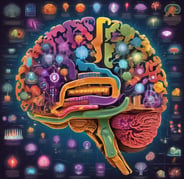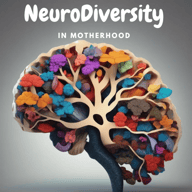Understanding Attention Deficit Hyperactivity Disorder (ADHD)


This blog aims to explore ADHD, its prevalence and diagnosis, and the associated signs and symptoms, providing some understanding that will help mothers face this reality and help them acknowledge that ADHD not only affects the child's life but also significantly impacts the mental well-being of mothers.
What is ADHD?
ADHD is a condition of the neurodevelopmental characterised by inattention, hyperactivity, and impulsivity that interferes with the functioning or development of the child. ADHD is recognised in the sixth edition of the Diagnostic and Statistical Manual of Mental Disorders (DSM-5), published by the American Psychiatric Association.
ADHD is often divided into three subtypes:
Predominantly Inattentive: Children with this subtype struggle with attention to detail, maintaining focus, following instructions, and organising tasks.
Predominantly Hyperactive-Impulsive: This subtype is characterised by hyperactivity and impulsivity, such as restlessness, difficulty waiting for turns, and frequent interruptions.
Combined: This subtype presents symptoms from both of the types mentioned above.
Signs and Symptoms
The signs and symptoms of ADHD may vary from child to child, but generally, the following behaviours are common:
Inattention:
Children need help paying attention to details or making careless mistakes in schoolwork, homework or other activities.
Children need help following instructions and completing tasks or obligations at home or school.
Need help organising tasks and activities.
Hyperactivity:
Being restless or fidgeting in situations where they are expected to sit still, such as in class or doing homework.
Running or climbing in inappropriate situations.
Talking excessive amounts.
Impulsivity:
Child have difficulty waiting their turn, interrupting others, or intruding in conversations or games.
They make hasty decisions without considering the consequences, which leads to undesirable situations.
Mothers, early identification and an accurate diagnosis are crucial for the effective management of ADHD in childhood and later in your child's life. Therefore, it is fundamental that parents pay attention to these signs and seek professional help if concerns arise.
The aetiology of ADHD is multifactorial, involving a combination of genetic, neurological, and environmental factors. ADHD in heredity plays a significant role, with twin studies showing that ADHD has a high concordance rate among identical twins (Faraone et al., 2005).
Prevalence and Diagnosis
Epidemiological studies estimate that ADHD affects between 5% and 10% of the global child population, although prevalence may vary by country and methodology used in research (Thomas et al., 2015). The diagnosis of ADHD is conducted by a psychiatrist or psychologist based on the criteria defined in the DSM-5 and the observation of the child's behaviours in different environments (home, school, and social).
The diagnostic process for ADHD involves gathering information about the child's behaviour from various sources, such as parents, teachers, and direct observations. It is important to remember that to ensure the accuracy of the diagnosis; the symptoms must be present in more than one environment.
Impacts on Psychological Well-Being among Mothers: Research shows that mothers of children with ADHD exhibit higher rates of stress and depression when compared to mothers of children without ADHD (Wilkins & Davis, 2016). Feelings of guilt, mainly, are common among these mothers, who may feel they are not doing enough to help their children.
References:
Faraone, S. V., et al. (2005). "Attention-deficit/hyperactivity disorder." The Lancet.
Thomas, R., et al. (2015). "The prevalence of attention-deficit hyperactivity disorder: a systematic review and meta-analysis." Psychological Medicine.
Wilkins, K. & Davis, B. (2016). "The psychological effects of parenting a child with ADHD: A systematic review." Parenting: Science and Practice.
